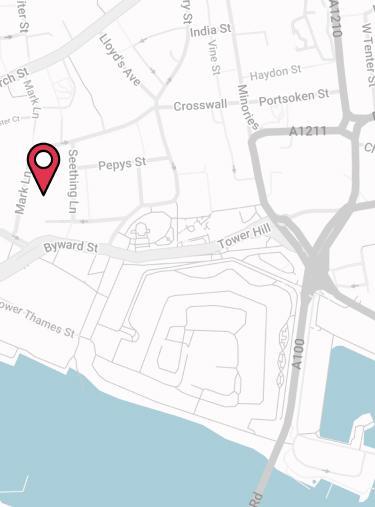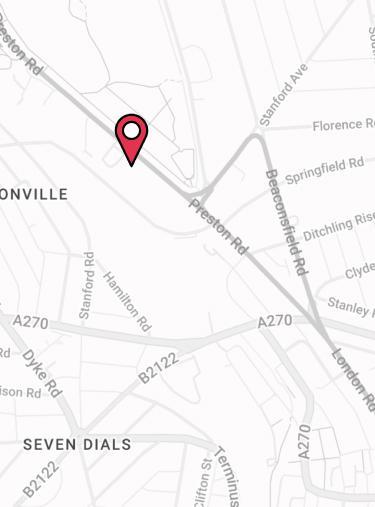Unlocking Tax Benefits In Your Workplace Pension: 52% Of Employees Want To Know More About Salary Exchange
Most employers already invest heavily in Workplace Pensions due to it being a mandatory benefit – but what if you could increase contributions, reduce your costs, and improve employee satisfaction without spending a penny more?
Salary Exchange (also known as Salary Sacrifice) is a smarter, more efficient way to fund Workplace Pensions – yet it remains one of the most underused features in the employee benefits toolkit.
According to the 2025 Drewberry Workplace Pensions Survey, just 19% of employees are paying into their retirement pots this way. That means 4 in 5 are missing out — and in many cases, their employers are too.
The Untapped Pension Savings For Businesses And Staff
For both employees and employers, Salary Exchange presents an opportunity to maximise pension contributions while reducing National Insurance (NI) costs. Because contributions are taken from an employee’s pre-tax salary, it results in lower taxable income, meaning there’s less Income Tax and NI to pay.
But the best part? Salary Exchange Pensions can increase the size of employee pension pots – without employers having to pay more.
Employees Don’t Understand The Benefits of Salary Sacrifice
Despite its clear financial advantages, Salary Exchange remains one of the least understood and underutilised features of Workplace Pensions. When asked if they’d heard of Salary Exchange, 56% of employees said they hadn’t heard of it or didn’t understand how this method worked.
1 in 5 Employees Don’t Have Access To Salary Sacrifice
When we asked employees whether their employer offers it, a surprising 74% said they either weren’t sure or believed it wasn’t available at all.
And even among those lucky enough to have access, only 1 in 5 are actually using it. That’s a huge missed opportunity — for employees to grow their pension pots more efficiently, and for employers to save on National Insurance and boost engagement without increasing costs.
Lack Of Understanding Preventing Bigger Pension Pots
Among those not making use of this valuable benefit, the most common reason cited was a lack of understanding around how Salary Exchange works.
Salary Exchange: The Benefit Employees Want to Understand
Salary Sacrifice pension contributions offer financial advantages, but awareness and understanding is still lacking. Encouragingly, employees are telling us they want to know more — and they’re looking to their employers to help them do it.
Employees Want Pension Education From Their Employers
When asked ‘Do you think your employer should provide more pensions education?’ 72% said yes.
- Had some education but could do with more (41%)
- Yes, I’m not clued-up at all (31%)
- No, they communicate well (20%).
When asked which topics they’d like to learn more about, Salary Exchange ranked firmly in the top three — highlighting a clear appetite for greater understanding.
Employees Want To Understand Salary Sacrifice Pensions
In a separate question, 52% of employees said they would be keen to learn about the tax benefits of Salary Exchange pensions.
Employees really value their pension, so imagine how engaged they would be if they fully understood it! Salary Exchange is a great way to do this, offering the chance to boost employee pension pots – without affecting your business’s bottom line. Want to chat it through with a professional? Make an enquiry or give us a call on 02074425880 to find out your options.
A Simple Change. A Big Difference
Workplace Pensions are consistently one of the most valued benefits among employees — but with Salary Exchange, you’ve got the power to make them go further for both your business and your employees.
Enhanced Workplace Pension Contributions Take Priority
Enhanced contributions are the third most-wanted benefit, according to our 2025 Employee Benefits And Workplace Satisfaction Survey, with 60% of employees saying they want their employer to contribute more to their savings pot.
Boost Pension Pots – Without Paying More
Employees aren’t just saying pensions matter, they’re willing to prioritise them. In fact, 58% said they would take bigger pension contributions over other benefits.
It’s worth assessing whether your existing benefits package is aligned with what your people value most. Which in this case is a bigger pension pot. Salary Sacrifice offers a simple yet powerful way to do just that. By simply changing the way contributions are made, you can unlock meaningful tax savings for your business while boosting the value of your employees’ pension.
It’s a small tweak with a big impact.
Example Of Salary Exchange In Action
Let’s say an employee earning £30,000 per year agrees to exchange £2,000 of their salary into their pension. This reduces their taxable salary to £28,000, lowering their Income Tax and National Insurance payments.
Meanwhile, your business saves on NI contributions for the exchanged amount, and can choose to reinvest the savings by enhancing the employee’s pension contribution. You can choose between the “Simple” or “SMART” method:
- Simple: More money in employee payslips
Takes the National Insurance savings an employee makes as a result of lowering their gross salary, and adds them to their Net Pay. This means each month employees will take home more money in their pay packet. - SMART: More money in employee pension pots
This option sees an employee’s pension contributions increase. Rather than the National Insurance savings being added to an employee’s their net pay, they’re added to their pension contribution.
Here’s the difference between Simple and SMART, based on the above employee earning £30,000 and choosing to swap 5% (£1,500) in exchange for pension contributions.
Simple Vs SMART | Simple | SMART |
|---|---|---|
Salary Exchange | £1,500 | £1,500 |
Gross Salary | £28,500 | £28,500 |
Tax | £3,186 | £3,186 |
Employee National Insurance | £1,274.40 | £1,274.40 |
Employee National Insurance Savings | £120 | £120 |
Net Pay | £24,039.60 | £23,919.60 | Employee Pension Contribution | £1,500 | £1,620 |
Employer NI Savings
It’s not just employees who benefit from Salary Sacrifice — employers can see significant savings too. By reducing the amount of salary subject to National Insurance, businesses can lower their NI bill without cutting pay or increasing pension spend.
The table below shows just how much an employer could save annually, based on different workforce sizes — assuming each employee earning £30,000 sacrifices £1,500 into their pension.
Employer NI Savings | Employees | Savings |
|---|---|
10 | £2,250 |
50 | £11,250 |
100 | £22,500 |
250 | £56,250 |
500 | £112,500 |
Why Offer A Salary Exchange Workplace Pension?
There are a number of benefits for both employees and employers when implementing a Salary Exchange Workplace Pension.
Benefits For Employers
As an employer you can benefit from:
- Significant cost savings
Employers can reduce their National Insurance contributions through Salary Exchange. These savings can be redirected into offering enhanced pension contributions, funding additional employee benefits, or improving business operations - Improved employee engagement and retention
Pension benefits are a key factor for job seekers, with 84% of employees stating that a good pension scheme is important when considering a job offer. By offering Salary Exchange and communicating its benefits effectively, you can attract and retain top talent - Boosting Workplace Pension engagement
With 57% of employees uncertain about how much they need to save for retirement, Salary Exchange serves as an accessible way to increase pension savings. When employees see their take-home pay impacted minimally while their pension contributions increase, they become more engaged with long-term financial planning.
Benefits For Employees
Employees also benefit from contributing to their pension via Salary Exchange.
- Increased pension contributions
Because Salary Exchange boosts pre-tax pension contributions, employees can build a larger retirement pot without significantly affecting their take-home pay. Given that 60% of employees want their employer to offer bigger pensions, a Salary Exchange scheme can make a substantial difference in their financial security - Lower National Insurance and income tax payments
By reducing taxable income, Salary Exchange helps employees keep more of their earnings. These savings can be used to supplement daily expenses, reinvested into additional pension contributions, or allocated towards other financial goals - Long-term financial stability
A larger pension fund means greater financial security in retirement. With rising concerns about the adequacy of Workplace Pensions (68% don’t feel it’ll be enough for a comfortable retirement), Salary Exchange provides employees with a simple way to save more for the future.
Common Misconceptions About Salary Exchange
Despite its advantages, some employees hesitate to enrol due to misconceptions. Employers must proactively address these concerns.
“I’ll Take Home Less Money”
Many employees believe Salary Exchange will reduce their take-home pay significantly. While there is a reduction in gross salary, the lower tax and NI payments mean the actual impact is minimal compared to the pension benefits gained.
“It Affects My Mortgage Applications”
Some employees worry that a lower reported salary could affect mortgage eligibility. However, most lenders assess mortgage applications based on total compensation, including pension contributions, so the impact is often negligible. Just be wary that an employee’s reduced salary cannot result in falling below National Minimum Wage, so not everyone will be eligible.
“It’s Too Complicated”
When set up correctly, Salary Exchange is straightforward, especially when employers provide clear guidance and support. Automated payroll systems (along with an employee benefits consultant) handle the adjustments, ensuring a seamless experience for employees.
While Salary Exchange schemes have clear benefits, there are some rules and conditions. Working with an adviser (like us) ensures your scheme is compliant and structured in a way that maximises benefits while adhering to HMRC guidelines.
By not offering Salary Exchange, your business misses out on significant cost savings and a chance to enhance your pension scheme’s attractiveness. In turn, employees, in turn, lose out on tax-efficient pension growth, which could affect their long-term financial wellbeing.
Salary Exchange Pensions: A Win-Win For Employees And Employers
Salary Exchange is one of the simplest and most effective ways to maximise pension contributions while reducing tax burdens. Yet, lack of awareness and misconceptions mean many employees are missing out on its benefits.
Employers that take the lead in promoting Salary Exchange will not only save on National Insurance but also empower their workforce to build a more secure financial future. As pension adequacy continues to be a major concern, Salary Exchange presents an invaluable opportunity to improve employee wellbeing while benefitting the business.
Considering Salary Exchange? Our friendly team will handle all the heavy lifting for you: from finding the right scheme, rolling it out to employees, and measuring its performance. We’ll ensure everything’s compliant, making adjustments where needed based on employee feedback and changing tax regulations. Call 02074425880 or make an enquiry to get started.
Why Speak to Us?
Employee benefits can be a headache. But our specialists do this day-in, day-out, offering first class service when you need it most. Here’s why you should talk to us:
- Award-winning independent employee benefits consultants, working with leading UK insurers and benefit providers
- Assigned specialist on hand to help – every step of the way
- 4100 and growing independent client reviews rating us at 4.92 / 5
- Authorised and regulated by the Financial Conduct Authority. Find us on the financial services register
- Claims support when you need it most.
Contact Us
125-135 Preston Road
Brighton
BN1 6AF
Cookies
Drewberry™ uses cookies to offer you the best experience online. By continuing to use our website you agree to the use of cookies including for ad personalization.
If you would like to know more about cookies and how to manage them please view our privacy & cookie policy.









